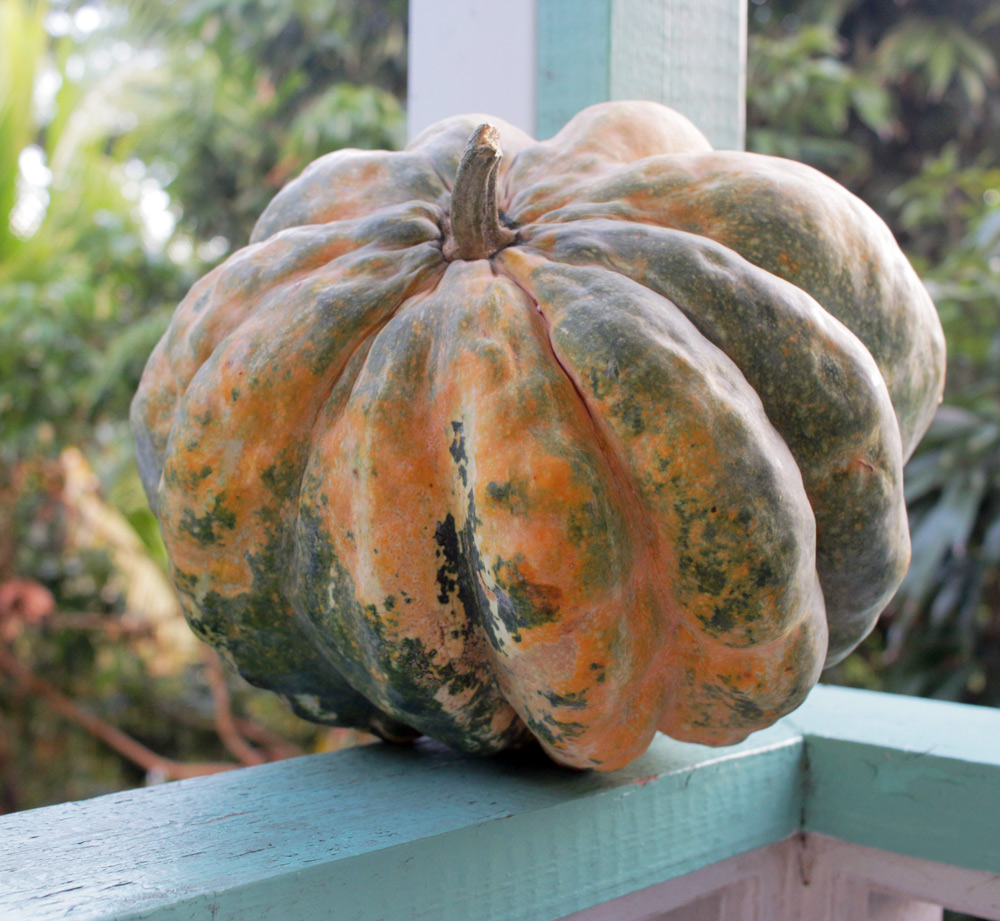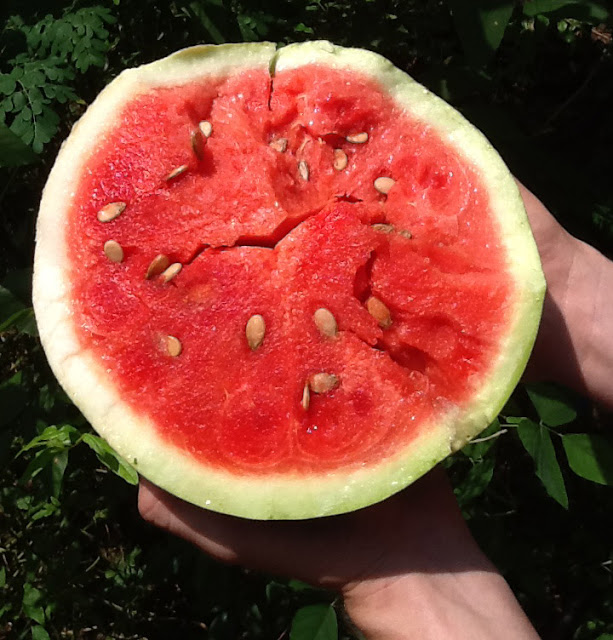Joseph Simcox, the Botanical Explorer, left us a comment about landrace watermelons in Africa:
Hello father and son,
Joseph Lofthouse is unique in this day in age only because we have grown so accustomed to “dividing and conquering” ( so to speak) in the modern worlds that we live. Growing melons like Moon and Stars or Desert King is not a limitation in itself but rather a fascination with character and consistency. When your plant the seeds of a “homogenous” variety you are pretty assured of getting the same delight. Now in many cases these were selections originally from landraces. I see endless fun in throwing together vastly different selections and am all for doing so. The keen eye of humans has been preferential in selecting out particular traits since times long passed. Recently I myself was on a ” wild goose chase” of sorts …in Botswana and Zimbabwe buying up watermelons along my wanderings, taking photos and notes and eating and saving the seeds! What landrace treasures I found and what genetic gems! Among things that dawned on me… Less groomed (I’ll just call them more fecund) melons) are chuck full of seeds..as we sat at the breakfast and dinner tables eating seedy melons a provocative thought hit me…eating seedy melons is a pastime invitation, a time to savor and reflect,; a time to slow down and enjoy!
This morning I posted a short clip of my son Ezekiel walking through his landrace watermelons in the Grocery Row Gardens.
There, he has all types of watermelons mixed together – and we haven’t even gotten into the varieties from overseas.
Joseph’s experience in the markets of Africa is quite similar to what we saw on the island of Grenada with various tropical pumpkin varieties. The abundance of varieties – the shapes – the colors! It was unlike anything we see in the states, as there were blurry lines between cultivars, as cross-pollination was common. Varieties might be similar on one farmer’s plot of land as he saved what he liked – or on one mountain – but then you’d see quite different-looking pumpkins in the next town or market, or just over the hill. And as people saved and planted seeds from pumpkins they found in the market, the varieties would continue to cross-pollinate and change. There was no obsessive desire to breed and then stop pumpkins from crossing so they’d always keep the same type. This was both good and bad, as sometimes you’d get watery, bland pumpkins and sometimes you’d get amazing ones – yet it really kept things interesting.

And as for watermelons, I’m going to get in touch with Mr. Simcox and see if we can trade some seeds.
PLANT SALE TOMORROW
Come meet us and get some “GOOD” plants!
We will have our nursery booth set up on Saturday, JUNE 17, at the Atmore Flea Market, from 8AM to 1PM.
ADDRESS: 1815 Highway 21, 36502, Atmore, AL
Some of the plants for sale include: Pineapple guava, Chaste tree, Echinacea, Edible cannas, Sweet Shrub, Jerusalem artichoke, Comfrey, Tobacco, Bamboo (giant yellow timber type) “Robert Young”, Longevity spinach, Tropical milkweed, Chocolate mint, Stevia, Banana (Dwarf Cavendish), Daisies, Elderberries …and a few more rare tidbits

We will also have books, and would love to talk gardening when you stop by.
SPECIAL DISCOUNT OFFER!
We like to recycle pots and reuse them, so we’ll give you a $.50 credit on any blank, useable, one-gallon or larger pot you bring to our booth. Bring what you have and trade ’em in for plants!
Hope to see you there.


1 comment
When I was growing up in Puerto Rico, I had the same experience. Great mix of Calabasas and many other fruits. As we went on, we would select for survival and then for flavor. We would try to keep those flavorfull survivors evey year but they would mix again and again. A few times they were just “ok” but most of the times they produced even more amazing fruits. Now I’m trying to replicate the same in West Central, GA and your son’s seeds are helping me a lot!
Comments are closed.